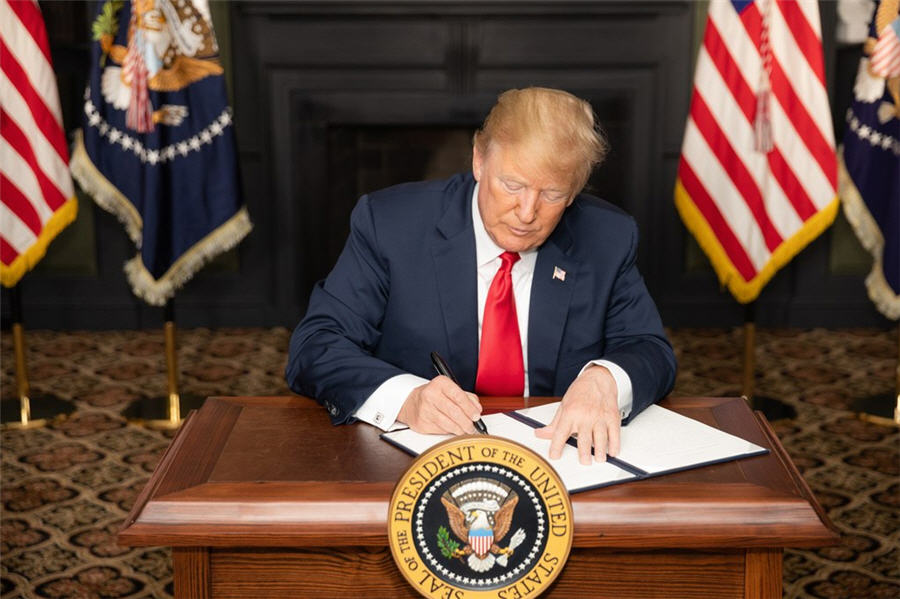US agency submits uranium import probe to White House

The U.S. Commerce Department has submitted to the White House the results of a national security investigation into uranium imports, a spokesman for the department said on Monday.
The “Section 232” probe was prompted by a petition filed by two U.S. uranium mining companies, Ur-Energy Inc and Energy Fuels Inc, complaining that subsidized foreign competitors, including Russia and Kazakhstan, have caused them to cut capacity and lay off workers.
U.S. nuclear power generators oppose the federal government taking action and have argued tariffs or quotas would increase costs for the struggling industry and possibly cause some reactors to shut.
The Commerce Department declined to discuss the recommendations because they are confidential.
The uranium companies proposed two remedies in their petition – requiring that domestic uranium supply 25 percent of the U.S. market and a requirement for U.S. federal utilities and agencies to buy U.S. uranium – approximately 12 million pounds per year
Commerce Secretary Wilbur Ross said in July 2018 the probe would canvass the entire U.S. uranium sector from mining through enrichment and defense and industrial consumption.
The uranium companies proposed two remedies in their petition – requiring that domestic uranium supply 25 percent of the U.S. market and a requirement for U.S. federal utilities and agencies to buy U.S. uranium – approximately 12 million pounds per year.
It would revive the struggling domestic uranium mining industry, which in 2017 saw production fall to near historic lows. Current uranium prices are hovering in the mid-$20s/lb compared to highs over $140/lb in 2007. “We believe that President Trump will recognize the danger of relying on large and increasing levels uranium imports from Russia, China and our geopolitical rivals,” said Curtis Moore, a spokesman for Energy Fuels. Energy Fuels and Ur-Energy are quietly preparing for a boost in both demand and prices if the Trump administration were to set a quota for uranium imports.
Energy Fuels has recently refurbished two of its mines in Utah to be able to ramp up production if Trump sets a 25 percent quota on uranium imports or imposes tariffs.
Utility companies and environmental groups are opposed to government intervention to bolster domestic uranium mining, albeit for different reasons.
The Ad Hoc Utilities Group, a group of electric utlities with nuclear plants in their fleets including Duke Energy Corp , Dominion Energy Inc and Entergy, said it will continue to make the case to the president – a supporter of nuclear energy – that the petition will saddle companies with millions in additional costs if they are forced to source domestic uranium.
“The geopolitical issues they raised have been more than adequately debunked,” said David Tamsai, spokesman for the group. “The petition would create a mandated market to make profits for two companies.”
Conservation groups are concerned that boosting domestic demand for uranium will put areas of land with uranium deposits – including acres within the now-redrawn Bears Ears National Monument in Utah and contested acres near the Grand Canyon in Arizona – in danger.
“There is a lot of reason to be concerned if these trade measures are taken,” said Amber Reimondo of the Grand Canyon Trust. “It will increase demand well beyond what current mines are capable of producing.”
Trump has 90 days to decide whether to act upon the recommendations.
(By Valerie Volcovici and David Shepardson; Editing by Susan Thomas)
{{ commodity.name }}
{{ post.title }}
{{ post.date }}




Comments